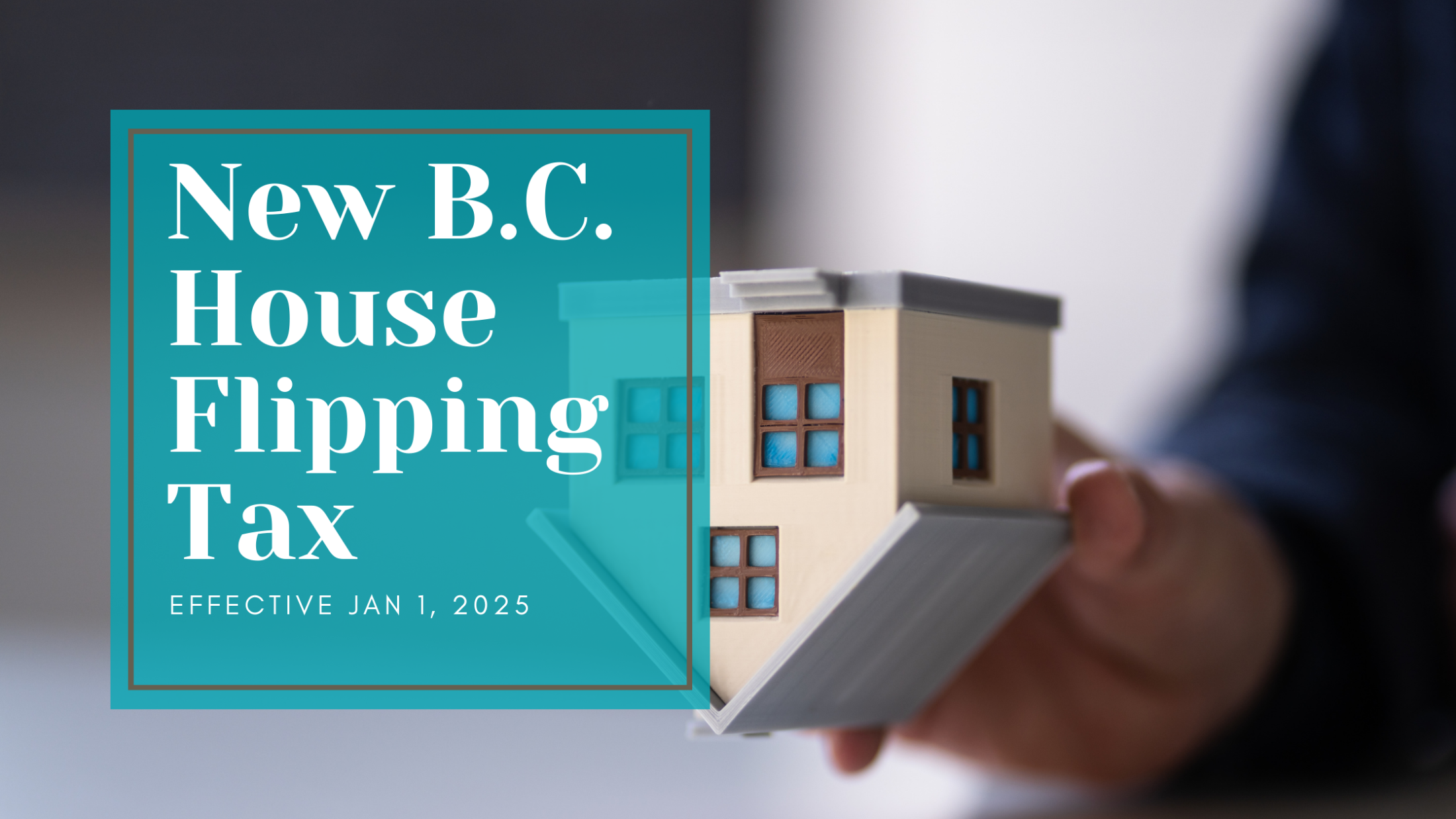The landscape of property flipping in Canada is changing. If you’re considering flipping homes in British Columbia, understanding the new BC Home Flipping Tax, effective January 1, 2025, is crucial. This new tax is designed to ensure that short-term home sales are taxed fairly and equitably. Let’s break it down in simple terms and explore what it means for you.
What Is the BC Home Flipping Tax?
In short, this tax is a provincial measure introduced to target short-term residential property transactions in BC. It applies to properties that are owned for less than 730 days (2 years) before they are sold.
Key Points to Remember:
Taxable Properties: This tax applies to residential properties or properties zoned for residential use in BC, including rights to acquire such properties (e.g., presale contracts for condos).
When Is the Tax Due: The tax is due 90 days after the sale.
When Does It Apply: The BC Home Flipping Tax kicks in if the property is sold before 730 days of ownership.
Exemptions: There are exceptions to the tax in certain situations, such as:
Death of the owner
Marital breakdown
Health-related reasons (e.g., serious illness or disability)
Employment-driven moves (e.g., work relocation)
Financial hardship (e.g., insolvency)
Threats to personal safety
Property expropriation or substantial damage
Federal vs. Provincial Rules: What’s the Difference?
In addition to the new BC tax, there’s also the Federal Residential Property Flipping Rule. This rule, which applies to property sold in less than 365 days, taxes any profits as business income. So, regardless of your original intention, if you flip a property quickly, you’re taxed as if you were running a business.
Important Federal Points:
Profit is fully taxable as business income.
Capital gains rules don’t apply (so no 50% exclusion).
You can’t claim the principal residence exemption.
Exemptions under federal rules are similar to those of BC: life events like death, divorce, or health-related moves.
How the Tax Calculation Works:
Let’s take an example:
Property in BC: If John buys a property for $500,000 and sells it for $700,000 within 364 days, his profit is $200,000.
BC Flipping Tax: 20% of $200,000 = $40,000
Federal Tax: 40% of $200,000 = $80,000
John’s total tax liability in BC would be $120,000, compared to $80,000 if he sold the property in Alberta, where there is no provincial flipping tax.
Key Takeaways:
The BC Home Flipping Tax is set at 20% for properties sold within 365 days and decreases gradually after that.
Exemptions exist, but only for life events or specific circumstances.
If you’re flipping homes frequently, be prepared for a significant tax hit.
Plan carefully: Understand the rules, exemptions, and how taxes will affect your bottom line before making that quick sale.
Stay ahead of the tax curve! Make informed decisions when flipping properties in BC. If you have any questions about your tax situation, reach out to us for professional advice!
